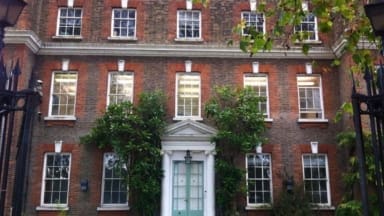
The controversial plans for the herbarium to relocate to the plant library in the Thames Valley Science Park has botanists worried about the future of their vital work. Opponents of the move, which includes many Kew staff, say it is unnecessary and will only hamper their research.
The relocation plans of the historic library could now be blocked after an original bequest by the botanist and first director of Kew (1841), Sir William Hooker was unearthed, stating that the collection must remain in place.
The Telegraph’s Science editor, Sarah Knapton reports the find of an 1865 letter by Williams, in which he wrote: “It is my earnest entreaty that on my decease, the Chief Commissioner of Works would present to Her Majesty’s Government …the opportunity of purchasing the Herbarium at a fair valuation and depositing it at Kew, as part of the Crown Property attached to the Royal Gardens.”
Knapton added that “Separate letters to the government from Sir Joseph Hooker, Sir William’s son, and also a former director at Kew, state that the “last wishes” of his father were that the collection be deposited at Kew “in perpetuity””.
The herbarium at Royal Botanic Gardens, Kew may be the largest and most significant plant collection in the world, for the definitive identification and naming of our planet’s wild plant species, crucial for their conservation and for evaluation of potential uses. Part of the government-funded Royal Botanic Gardens, Kew, the Herbarium & Library were founded in 1851 and occupy a prominent place on Kew Green. The building complex supports research based on the synergies of circa 7 million authoritatively named, expertly curated herbarium specimens, a staff of more than 40 experts in plant taxonomy, biology and conservation, a major botanical reference library, the living collections, and partnerships with over 100 countries especially in the global south.
According to the scientists, the (“Kexit”) move only isolates the herbarium by “dividing it from the living collections in the gardens, from the library, from the Jodrell laboratories, the MSc and PhD students and other scientists at Kew Gardens” and thereby risks serious damage to this crucial, global centre for plant taxonomy. “It would be removing the beating heart from the body of RBG, Kew”, say the Kew Keepers.
The move would disrupt ongoing urgent work by Kew taxonomists addressing the global extinction crisis, discovering and naming the thousands of plant species that remain unknown to science, before they become extinct, to improve their conservation outcomes and research new uses.
The campaign petition to keep the herbarium in its current historic building has been signed by over 16,500 people, including plant scientists around the world. Kew Keepers urge that the available resources should instead be directed to further renovating and improving the existing herbarium buildings at Kew Gardens rather than constructing a new building.
Further reading
- The Telegraph, Sarah Knapton, Alan Titchmarsh hits out at Kew Gardens’ plan to move botanical collection, 9th of August 2023.
- Science, Erik Stodstad, Botanists fight removal of plant specimens from one of the world’s most spectacular gardens, 11th of October 2023.
- Nature, Pressed for space, 18th of October 2023.
- Announcement by RBG Kew, Relocating Kew’s herbarium for the future of our collections, 9th of August 2023.

